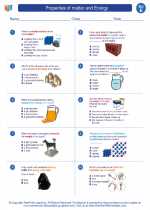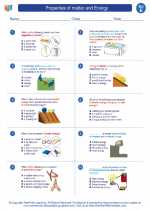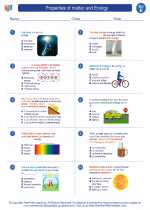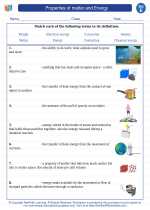Types of Telecommunication
There are several types of telecommunication, including:- Wired Communication: This includes the use of physical cables such as fiber optics, coaxial cables, and twisted pair cables for transmitting data.
- Wireless Communication: This involves the transmission of information without the use of physical cables, utilizing technologies such as radio waves, microwaves, and satellites.
- Broadcast Communication: This type of communication involves the transmission of audio and video content to multiple recipients simultaneously, such as through radio and television broadcasting.
- Internet Communication: The internet serves as a global system for interconnected computer networks, allowing for the transmission of various forms of data including text, audio, and video.
Key Concepts in Telecommunication
When studying telecommunication, it's important to understand the following key concepts:- Transmission Media: This refers to the physical pathways used to transmit electrical signals or data, including cables, optical fibers, and wireless communication channels.
- Modulation and Demodulation: Modulation involves the process of varying a carrier signal's properties, such as its amplitude, frequency, or phase, to encode information. Demodulation is the reverse process of extracting the original information from the modulated carrier signal.
- Telecommunication Protocols: These are standardized sets of rules or formats for transmitting data, ensuring compatibility and seamless communication between different devices and networks.
- Network Topologies: The arrangement of nodes and the interconnections between them in a telecommunication network, which can include bus, star, ring, and mesh topologies.
- Telecommunication Technologies: This encompasses the various technologies used for telecommunication, such as analog and digital transmission, satellite communication, cellular networks, and internet protocols.
Study Guide for Telecommunication
To effectively study telecommunication, consider the following steps:- Understand the Basics: Start by grasping the fundamental concepts of telecommunication, including the different types and methods of communication.
- Learn about Transmission Media: Explore the characteristics and applications of wired and wireless transmission media, and understand their advantages and limitations.
- Explore Telecommunication Protocols: Study common protocols such as TCP/IP, HTTP, and FTP, and understand how they facilitate data transmission in networks.
- Understand Modulation and Demodulation: Delve into the concepts of modulation techniques, including amplitude modulation (AM), frequency modulation (FM), and phase modulation.
- Examine Network Topologies: Learn about different network topologies and their implications for data transmission and network reliability.
- Explore Telecommunication Technologies: Research various telecommunication technologies, such as 3G, 4G, and 5G networks, as well as satellite communication systems.
- Stay Updated: Given the rapid advancements in telecommunication, stay informed about the latest trends and developments in the field.
◂Science Worksheets and Study Guides Fifth Grade. Properties of matter and Energy
Study Guide Properties of matter and Energy
Properties of matter and Energy  Worksheet/Answer key
Worksheet/Answer key Properties of matter and Energy
Properties of matter and Energy  Worksheet/Answer key
Worksheet/Answer key Properties of matter and Energy
Properties of matter and Energy  Worksheet/Answer key
Worksheet/Answer key Properties of matter and Energy
Properties of matter and Energy  Vocabulary/Answer key
Vocabulary/Answer key Properties of matter and Energy
Properties of matter and Energy  Vocabulary/Answer key
Vocabulary/Answer key Properties of matter and Energy
Properties of matter and Energy 

 Worksheet/Answer key
Worksheet/Answer key
 Worksheet/Answer key
Worksheet/Answer key
 Worksheet/Answer key
Worksheet/Answer key
 Vocabulary/Answer key
Vocabulary/Answer key
 Vocabulary/Answer key
Vocabulary/Answer key

The resources above cover the following skills:
PHYSICAL SCIENCE (NGSS)
Matter and Its Interactions
Students who demonstrate understanding can:
Develop a model to describe that matter is made of particles too small to be seen.